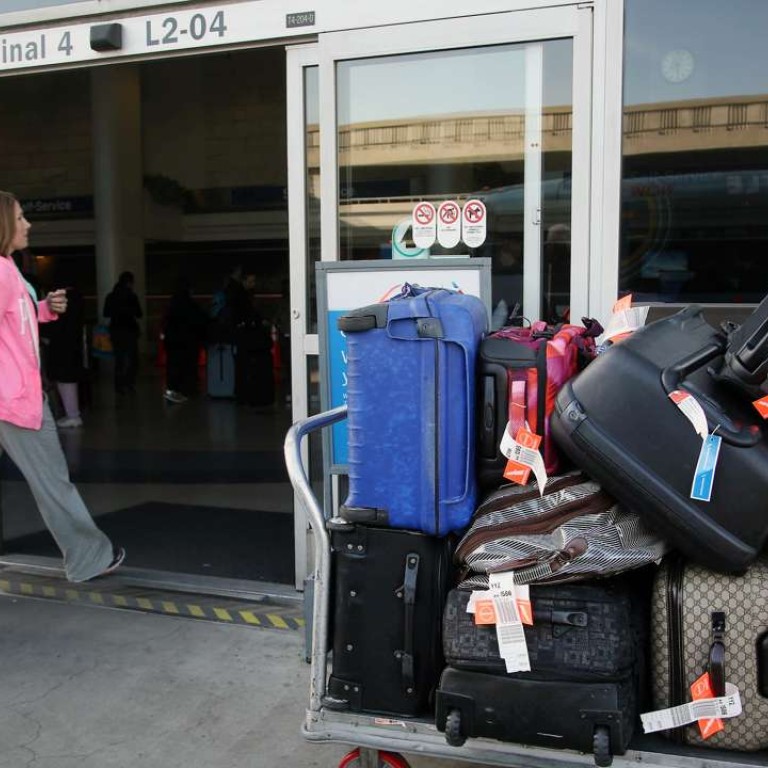
It’s only a small step from distrust in ruling elites to distrust in the legal system
As soon as the plane door opened at Los Angeles airport, I knew I was in trouble. There at the door was an anxious Cathay Pacific ground staff with a big notice: “Lima: DAVID DODWELL”. All in big capitals. At the best of times transiting Los Angeles is a headache. Landing there late is a guaranteed nightmare.
It was 11.00 at night, and my connecting LAN flight to Lima was due to fly at 12.15. The message was clear: with a rush and expedited passage through immigration, they were confident they could get me on the onward plane. But my suitcase – forget it. They would send it on and deliver to my hotel the following day. So, tired, jetlagged and obedient I was bundled across the sprawling airport and successfully boarded the Lima flight just as the passenger doors were being closed. Whether I ever saw my luggage again was in the hands of Cathay Pacific.
This all-too-common LA trauma got me thinking, as I settled in for another 10 hour flight in a tight economy seat – about trust. There I was entrusting my suitcase to a man I had never met, and would never meet again. I trusted him for one reason only – his Cathay Pacific uniform. With many other airlines, I would have been in a state of total panic. But there are many situations in our daily lives where trust is indispensible, and where a loss of trust can destroy our ability to function efficiently.

In the US, a similar collapse in trust in the Washington elite has prompted millions who in more rational times would know better than to sleep walk behind a modern charlatan Pied Piper. Without trust, even simple things become hard.
About 18 years ago, my small communications company was being wooed by a nameless US communications giant. They came pitching me with a whole suite of proprietary “Trustworks” products. Their mantra was that any company needed to build a positive balance of trust in a sort of “Trust Bank Account”. Having won the trust of their stakeholders – from staff to suppliers and customers, from shareholders to regulators – then even if they tripped up and had to deliver bad news, they would be forgiven. In effect they could draw down on their hard-earned positive trust balance. But with no positive trust balance, then beware how stakeholders will treat you – even when you have good things to tell.
The concept was a good one, though I always taunted them over their temerity as a US company to talk about trust. Anyone who has watched US companies pour over legal agreements with business partners will know that an absolutely fundamental principle of a US company is to trust nothing and no-one. Not for them the time-honoured handshake with which many Asian business people can seal a deal. A US company trusts in just one thing – the Rule of Law. In the absence of personal trust, there is nothing else that can give you the confidence to do business with strangers. That is why the US swarms with lawyers, and why a Trans-Pacific Partnership agreement is 15,000 pages long.
Western reliance on the rule of law need not be the optimal way of building trust or settling disputes – I recall an astonishing four days as a Financial Times journalist in the Baluchistan desert three decades ago watching neighbouring Bukti and Marri tribal leaders end a two-decade blood feud that involved settling 18 murders, hundreds of abductions of wives and women, and the theft of thousands of guns, horses and other treasured possessions. Over the course of two days sitting cross-legged in the shade of a shamiana surrounded by thousands of tribal followers in the middle of the Baluch desert moonscape these two leaders settled a case-load that would have taken our western legal systems literally decades to resolve, and would have cost literally hundreds of millions of dollars in fees.

An alarming aspect of recent political developments like Brexit and Trump – and Hong Kong’s Occupy movement no less – is the erosion of trust they imply. So too with controversy over registration requirements for Legco election candidates. It is only a small step from distrust in our ruling elites to distrust in the legal systems that they have designed. This is doubly true when the cost of access to the law is prohibitive for ordinary Hong Kong people. Access to legal protection has become a privilege of the wealthy Hong Kong elite – as a result of which trust in our rule of law is debased and undermined.
In the absence of trust in our rule of law, people resort back to more traditional foundations for trust – trust in long-standing friends, or in companies or institutions where a positive trust balance has been built in their “Trust Bank Account”. Needless to say, a day after arriving in Lima, my suitcase turned up at my hotel like some faithful carrier pigeon. One more credit into Cathay Pacific’s trust bank account. What must CY Leung and his administration do to begin accruing similar credits? At present, they seem to be deep in debt. Time is short between now and next year’s Chief Executive elections to build a positive trust balance.
David Dodwell is executive director of the Hong Kong-Apec Trade Policy Group

